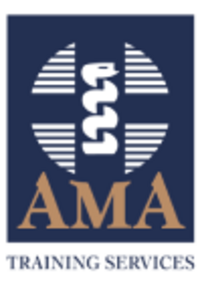Course providers in Western Australia
The following providers offer the HLT54121 Diploma of Nursing in Western Australia.Entry requirements
Entry requirements set by ASQA are the basic qualifications and criteria that students must meet before enrolling in a nationally recognised course.
These requirements ensure students have the skills and knowledge needed to undertake this course.
- There are no formal academic requirements
- Additional entry requirements are set by individual course providers
Course fees
The estimated fee reflects the price range across training providers in Western Australia.
The course fee is determined by each individual provider and may vary depending on factors like study mode and student support availability.
- WA Subsidised Training This training may be subsidised by the WA Government for eligible individuals. Places are limited.
Career opportunities
The Diploma of Nursing will prepare you for the following roles.
Enrolled Nurse
An Enrolled Nurse provides care to patients in a range of settings such as hospitals, healthcare facilities and residential care environments. You...
Aged Care Nurse
An Aged Care Nurse provides specialised care to elderly patients in a hospital, healthcare environment or an aged care facility. You’ll monitor hea...
General Practice Nurse
General Practice Nurses are qualified RNs who work in primary health care rather than hospitals. They are employed by medical centres, aged care fa...
Palliative Care Nurse
A Palliative Care Nurse provides compassionate care to patients with life-limiting illnesses. You might work in hospitals, hospices, or patients’ h...
Rehabilitation Nurse
A Rehabilitation Nurse provides care to patients who are recovering from an accident, injury or illness. You might work in a hospital, a specialist...
School Nurse
A School Nurse provides health care services and advice to patients in a school setting. You might treat students and staff for minor injuries or i...
Clinical Research Nurse (CRN)
A Clinical Research Nurse (CRN) conducts and supports medical studies to improve patient care. You might recruit participants, collect data, and pr...
Gerontologist
Gerontologists are concerned with the treatment, care, and emotional wellbeing of people over 65 years of age, especially elderly persons. As the w...
Diabetes Educator
A Diabetes Educator provides information to patients and health professionals on the management of diabetes. You might work with individual clients...
Find a course provider
Compare all providers for the available in Western Australia to find the right fit for you.
More about Diploma of Nursing
The Diploma of Nursing represents a significant step for aspiring healthcare professionals in Western Australia, offering a comprehensive curriculum that prepares students for various nursing roles. This qualification opens doors to a multitude of career pathways, including positions such as Registered Nurse and Enrolled Nurse. By undertaking this diploma, students will gain the necessary skills and knowledge to embark upon a fulfilling career in the healthcare sector, responding to the growing demand for nurses in the region.
Students in Western Australia have the advantage of choosing from several reputable training providers, such as Stanley College, CR TAFE, and South Metropolitan TAFE. Each of these providers offers the Diploma of Nursing through an On Campus delivery mode, ensuring that students have access to face-to-face learning environments and hands-on practical experience, which is crucial for developing nursing competencies.
The Diploma of Nursing course aligns with several vital fields of study, which include Community Services courses and Healthcare courses. As students immerse themselves in these studies, they will not only deepen their understanding of nursing but also explore specialities such as Nursing and Aged Care. This multifaceted approach ensures that graduates are well-rounded and equipped to handle the complexities of the healthcare system effectively.
Upon completion of this diploma, graduates can pursue various roles that cater to diverse communities' healthcare needs, such as Community Health Nurse and Aged Care Coordinator. The skills acquired through the Diploma of Nursing allow individuals to work effectively in both clinical and community settings, thus making a tangible impact on the lives they serve. Furthermore, the course equips students with the competencies needed to excel in demanding areas like Critical Care Nurse and Palliative Care Nurse.











